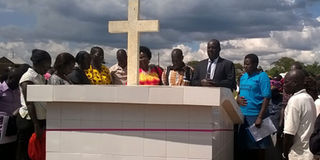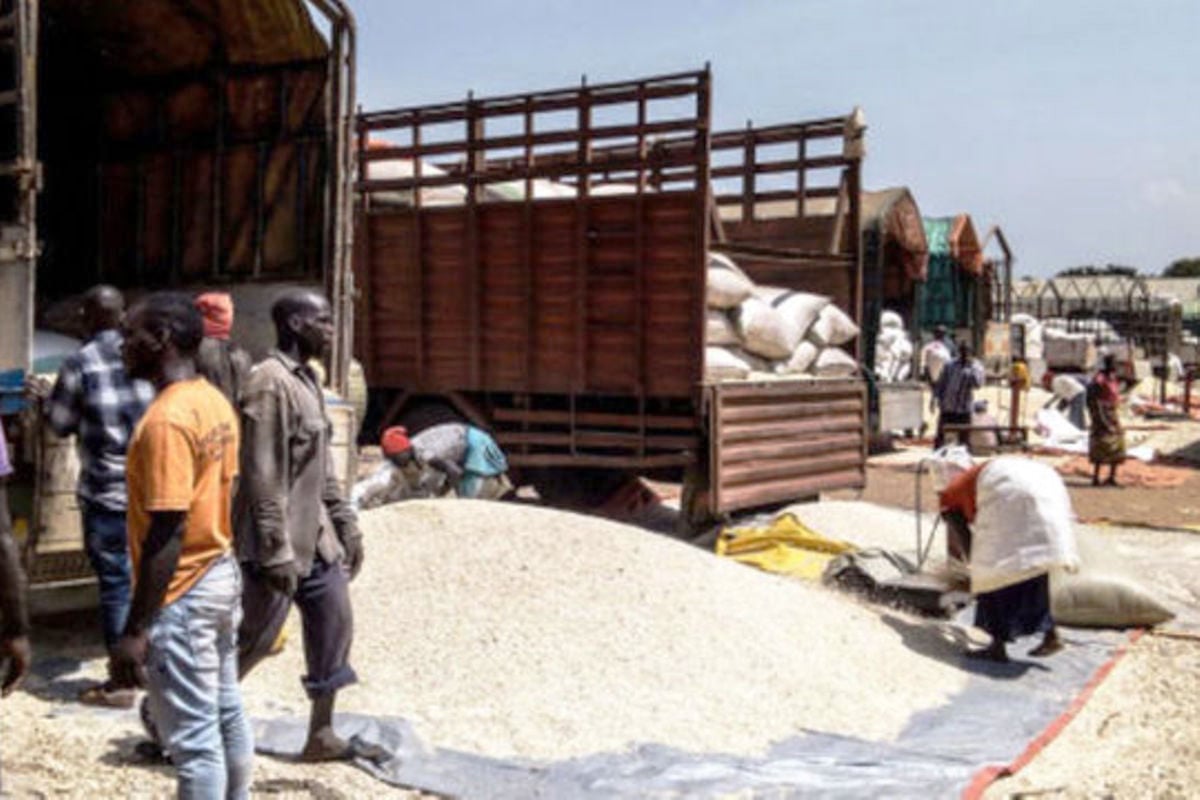Former LRA abductees still in misery

Paying respect. Locals pray at a monument in Odek Sub-county, Gulu District, which was built in memory of 44 people who were killed by the Lord’s Resistance Army rebels. PHOTO BY JAMES OWICH
What you need to know:
- Ms Auma was abducted with her husband in Pabbo Sub-county in Amuru District while tilling their garden in 1996. She returned in 2006.
- Acholi Cultural Institution prime minister Ambrose Oola, says the government should set up a special programme to rehabilitate former abductees and reintegrate them into society.
GULU. Efforts by former Lord’s Resistance Army (LRA) abductees to rebuild their shattered lives is being hindered by stigmatisation and rejection by members of their communities.
Many of them were abducted when they were children and forced to become soldiers, fighting government forces, while the girls were forced into sexual relationships by their abductors.
They endured several years of abuse and humiliation, longing for the day they would be rescued from their misery.
However, their misery is still continuing because of the stigmatisation and rejection the former abductees and their children born in captivity are subjected to by their communities.
The situation is compounded by insufficient government psychosocial support to enable the former abductees reintegrate into the society.
Many of them are unemployed single mothers struggling to make ends meet.
Ms Alice Auma, 46, returned to her community after 10 years in captivity but did not get the warm welcome she thought she would receive.
She says she is subjected to open hostility with her children by residents of her village. She adds that she regrets returning home alive.
Ms Auma was abducted with her husband in Pabbo Sub-county in Amuru District while tilling their garden in 1996. She returned in 2006.
Ms Auma, who had two children when she was abducted, lost contact with her husband and does not know his whereabouts.
In captivity, she gave birth to three more children fathered by an LRA combatant.
“The children from captivity have been rejected by both my relatives and the community we live in. I regret returning from captivity. I wish I died with my children while there. Nobody seems to care about our plight,” she says.
“The men who had children with some of us, after captivity life do not want to associate with us, something that has bothered us a lot,” she adds.
Ms Lilly Atek, 35, who shared a similar plight, says she regrets returning home alive given the hostile environment under which she is living.
Ms Atek was abducted in 1996 in Olwal, Amuru District, and returned in 2002 with two children who were born in captivity.
Her children were fathered by an LRA commander.
She cites numerous challenges, including providing education for her children single-handedly after the man who fathered them while she was in captivity abandoned her with the four children.
Atek says her future was ruined by her abduction which interrupted her education.
“My hope keeps on fading day by day after several promises by well-wishers to help me educate my children failing to materialise,” she said.
Atek says many people are benefiting from their suffering by creating phony organisations to ensure funds from donors under the pretext of helping them.
Ms Evelyn Amony, the chairperson of Women Advocacy Network (WAN), a local non-governmental organisation that brings together more than 600 female former abductees, said the former abductees are living in abject poverty and the women are struggling single handedly to raise their children.
Ms Amony, a former abductee, is bitter that they are living in communities with perpetuators who have neither faced justice nor apologised to them.
“We went through a lot and some of us still have scars and wounds left on us and whenever we meet the perpetuators who inflicted pain on us, we feel more hurt because they have never said sorry, which means they did it intentionally to hurt us,” Ms Amony says.
She adds that those who forced them into sexual relationships while in captivity have abandoned them and married other women.
“In other countries where such insurgencies happened, the government supports reintegration programmes. But for the case of our country, the government has ignored us and this is very disappointing,” Ms Amony says.
Retired Bishop of Kitgum Diocese Macleod Baker Ochola II says the government should have a policy to address the challenges the former abductees are facing.
Acholi Cultural Institution prime minister Ambrose Oola, says the government should set up a special programme to rehabilitate former abductees and reintegrate them into society.
“There is nothing specific targeting the returnees in particular as far as recovery is concerned. Both Peace, Recovery and Development Plan and NUSAF are covering a wider range of issues. As leaders, we feel there should be a programme that should be ring-fenced to specifically cater for the needs of the LRA returnees,” he says.




